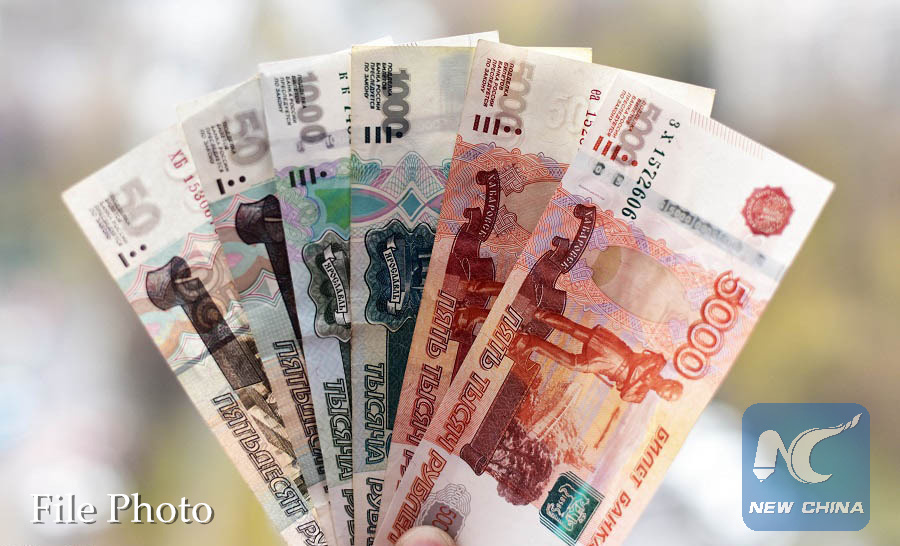
Russia's ruble banknotes are seen in this file photo taken on April 28, 2017. (Xinhua/Shi Hao)
MOSCOW, March 22 (Xinhua) -- The Russian central bank said Friday it had lowered its forecast for inflation at the end of 2019 to 4.7-5.2 percent from a previous 5.0-5.5 percent on lower than expected inflation dynamics since the start of the year.
It said in a statement that annual inflation was 5.2 percent in February, up from 5.0 percent in January, but below the bank's expectations.
As of March 18, annual inflation was 5.3 percent, as the influence of the increase of the value-added tax (VAT) to 20 percent from 18 percent from Jan. 1 has largely petered out, the statement said.
But the bank warned that certain deferred effects of the VAT hike may manifest themselves in the months to come and that an accurate assessment of its effect on inflation can be made in the second quarter of the current year.
According to the bank's forecast, annual inflation will pass its local peak in March-April and quarterly year-on-year consumer price growth is set to decelerate to a targeted 4 percent as early as the second half of 2019.
Annual inflation will return to 4 percent in the first half of 2020 when the effects of the ruble's weakening in 2018 and the VAT rise finally peter out, the bank said.
Currently, Russia's economy is close to its potential with consumer demand movements and labor market conditions not generating inflationary pressure, the statement said.
The bank said it had decided to keep it 2019 gross domestic product (GDP) growth forecast at 1.2-1.7 percent, compared to 2.3 percent in 2018.
Newly attracted budgetary funds will be used to boost government spending, including spending on investments, and subsequent years might see higher economic growth rates as national projects are implemented, it added.
It estimated that under its baseline scenario, Russia's GDP may grow by 1.8-2.3 percent in 2021 and by 2.0-3.0 in 2021.
The bank decided Friday to keep its key lending rate at 7.75 percent, saying that if the situation develops in line with its baseline forecast, it could cut the rate later in the year.

